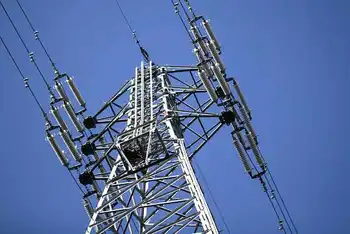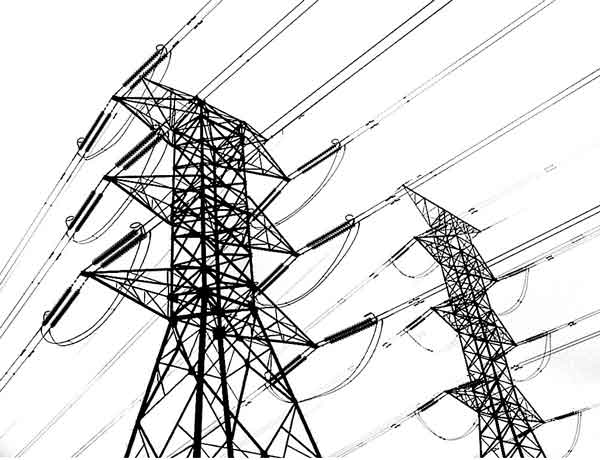EV future may power a charging industry
By Reuters
NFPA 70e Training - Arc Flash
Our customized live online or in‑person group training can be delivered to your staff at your location.

- Live Online
- 6 hours Instructor-led
- Group Training Available
U.S. President Barack Obama aims to put a million electric vehicles on the road by 2015 as part of the new U.S. effort to cut greenhouse gas emissions linked to global warming.
Cars are sexier than gas pumps or charging stations, but as the history of the oil industry shows, fuel is big business. A million electric cars will need a lot of power and a complex system to make sure the grid is not overwhelmed.
"Your head starts spinning when you think of what the possibilities and opportunities are but also the complexity," said Bill Nicholson, who leads the electric vehicle initiative at Portland General Electric in Oregon.
He does not expect utilities to be big players in setting up charging stations although they will provide the power.
"There will be some pretty large players in the charging station infrastructure business who will then partner with some pretty large players in the information side of this, the IBMs of the world and others that do nationwide deployment of standardized charging stations," he predicted.
Politics are sure to shape the economics of the industry. The Climate Change bill that has passed the U.S. House of Representatives and is being considered by the Senate requires utilities to draw up plans for charging electric vehicles. It also sets financial incentives to set up charging stations and subsidies for people buying electric cars.
Many wonder if electric vehicle sales will take off. Automakers sold only about 160,000 hybrids, or 2.8 percent of total sales, in the U.S. this year through July, according to Autodata.
Plug-in hybrids, which are part of Obama's goal of having one million electric cars on the roads by 2015, may account for 25 percent of auto sales by 2020, according to separate studies by the Department of Energy and environmental groups.
Electric cars can be smooth, quiet and environmentally friendly. But they must deliver clear operating savings, since their price tag may initially be higher than conventional vehicles. Nissan roughly sees their operating cost equivalent to $1.10 per gallon of gasoline.
Skeptics say charging stations won't be a viable business because drivers will top off batteries at home, except on long trips, and won't want to pay a premium for electricity.
"We've found that about 90 percent of our customers' charging happens at home," said JB Straubel, Chief Technology Officer of Tesla Motors, maker of a $100,000-plus electric sports car whose 300-mile range is triple that of mass market vehicles from other makers due to enter the market late next year.
Proponents counter that charge stations will proliferate once there are a million or more electric cars on the roads. Most charging will be done at home, but some cars don't even have a garage.
"If you live in San Francisco, 51 percent of all cars are parked curbside at night," said Richard Lowenthal, founder and CEO of Coulomb Technologies, which aims to sell about a thousand charging stations this year at $2,000-plus each.
"I ship a station, I keep $1,000," said Lowenthal. He expects five times as many sales next year. But he says electric charge stations will offer a lot more than a plug.
Company founders included former executives of Internet equipment maker Cisco Systems Inc, and Coulomb sees services such as finding a free charge spot by cell phone as key to its potential success.
A University of California, Berkeley study says as much as $320 billion will be spent on charging infrastructure over the next couple of decades. The U.S. Department of Energy recently awarded $2.4 billion in electric-vehicle related grants.
Technology being developed by the industry will cut the time it takes to charge a car battery from hours to between 10 and 45 minutes. That won't be possible in most homes, but it should make long trips much easier.
"That's kind of a game changer because then you can do fast charging and it's competitive with gasoline," said Jeff Kim, president of privately held Shorepower Technologies, which already has charging stations at truck stops to run air conditioners on big rigs while drivers sleep.
A big roll-out of charging stations could come in about six months said, Kristen Helsel, director of electric vehicles at AeroVironment Inc.
"What's really important is we go in before the cars, but not a whole lot before the cars," she said.
Views about who could own the stations are all over the map. Equipment makers could deploy stations themselves, parking garage and restaurant owners could buy them for their properties, and larger networks might be set up by independent operators or companies who see charging as part of a bigger business of providing services to electric car owners.
Lowenthal has sold chargers to a McDonald's restaurant and his own landlord. Both hope to attract 'green' clients, he said. He's also had interest from financiers.
Entrepreneur Ron Percival, of PowerUp Systems Inc., is buying Shorepower stations and plans a network of 'e-Stations' in Vancouver, Seattle and Toronto in time for the Vancouver 2010 winter Olympics. If successful he will expand in the Pacific Northwest and Canada.
A big question is whether municipalities and utilities will take on charging. Better Place, a California company with $300 million in funding and plans to build networks from Australia to the San Francisco Bay Area, says cities and power companies won't do more than set up 'seed' stations.
"For real adoption you need to have real numbers. You can't have people driving around looking for a charge spot because it won't work," said Sidney Goodman, vice-president of Automotive Alliances at Better Place.
Better Place plans to lease batteries to drivers along with charging facilities. Motorists will be able to swap spent batteries at its stations and the company will develop a computer network to make the process easier.
The company has not yet raised the money it will need to begin operations in the United States, but it has started investing an expected $150 million to $200 million into deploying 100,000 charging spots and stations to swap out depleted batteries in its first deployment, Israel.











